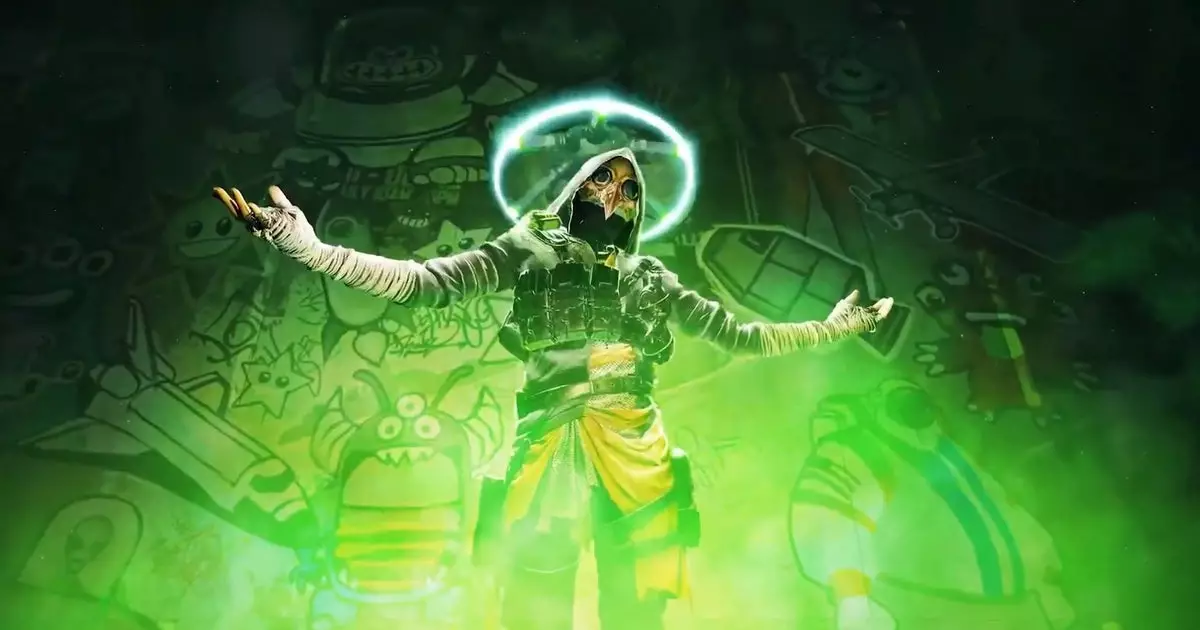Ubisoft’s recent announcement regarding the discontinuation of their multiplayer shooter, XDefiant, presents a cautionary tale of the volatile nature of the video game industry, particularly the free-to-play market. The company is set to lay off approximately 277 employees, a significant move that underscores not only the challenges of the gaming landscape but also the human implications behind such corporate strategies. This article delves into the ramifications of this closure, the company’s strategies moving forward, and the broader implications for the industry.
XDefiant, which had aspirations of becoming a competitive player in the saturated realm of free-to-play FPS games, struggled to find its footing despite its potential. In an official statement, Ubisoft executive Marie-Sophie de Waubert articulated a sobering truth; their efforts to “attract and retain” a dedicated player base fell short. The discontinuation of the game and the simultaneous layoffs signal a stark reminder of the high stakes involved in modern game development. For the employees, many of whom will find themselves without a job in San Francisco, Osaka, and Sydney, this decision is not merely a corporate realignment but a personal crisis.
The abrupt closure casts a long shadow over those who dedicated tremendous effort and creativity to bring XDefiant to life. While the company’s decision to keep multiplayer servers operational until June may offer a semblance of closure to existing players, it does little to mitigate the immediate fallout for those losing their livelihoods. The language used in the announcement, such as “departing,” seems to trivialize the gravity of the situation, glossing over the emotional trauma inherent in such layoffs.
The Risks of Games-as-a-Service
Ubisoft’s struggles with XDefiant highlight the inherent risks associated with the games-as-a-service (GaaS) model. Despite the initial enthusiasm for this framework—promising continuous content and long-term engagement—the reality is that many titles under this umbrella fail to achieve the desired player retention and competitive edge.
In her statement, de Waubert emphasized that GaaS remains a cornerstone of Ubisoft’s strategy. This indicates a stubborn adherence to a business model that has not only proven to be financially fraught but has also started to wear on consumer patience. Ubisoft’s own historical context is filled with titles that saw initial struggles but later achieved success—like Rainbow Six Siege—but these success stories appear to be the exception rather than the norm. Given the current gaming climate, the continued emphasis on this model requires a reevaluation of priorities. A commitment to quality and innovative gameplay must take precedence over mere adherence to trends.
In September, executive producer Mark Rubin vehemently denied speculation regarding the game’s impending demise, insisting that XDefiant was not “dying” and that Ubisoft remained committed to its success. However, such promises appear increasingly hollow in the face of the recent announcements. The disconnect between management assurances and the abrupt shift to termination raises questions about internal communications and decision-making processes within Ubisoft.
As industry observers note, the most successful titles often undergo significant transformations through community feedback and iterative improvements. The opportunity for XDefiant to grow through player engagement and innovation has now been abruptly curtailed. Ironically, while Ubisoft has experienced growth through games that initially floundered, it seems they have lost patience with XDefiant far more quickly than previously apparent.
The closure of XDefiant serves as a potent reminder to both developers and players about the fickle nature of the gaming market. While initial excitement and investment can be substantial, sustained success requires continuous adaptation and deep community engagement. The industry must take note of the severe consequences that accompany unsuccessful launches, particularly when they result in significant layoffs.
Looking ahead, Ubisoft’s strategic commitment to GaaS could be informed by lessons learned from XDefiant. A more cautious approach focusing on quality over quantity, community feedback, and adaptability may be vital for future projects. As nearly 300 employees grapple with the reality of finding new employment, the broader gaming industry must also confront the ethical considerations of prioritizing profit margins over the dedication and aspirations of the individuals behind the screens.
The end of XDefiant not only signifies a significant shift for Ubisoft but also exposes the precarious balance between ambition and reality within the gaming realm. This closure serves as a stark reminder of the stakes involved and the human toll that can result from corporate decisions entangled with the ever-evolving dynamics of the gaming industry.

